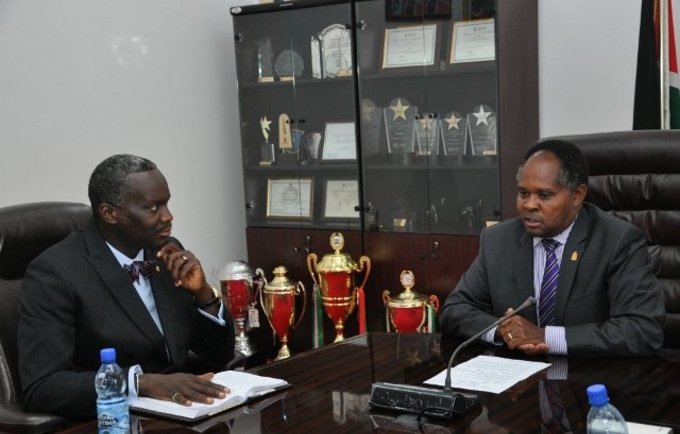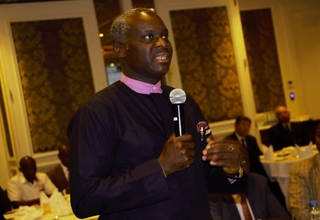In a world that is quickly transforming, there is need to enhance processes of developing and strengthening skills, instincts, abilities, processes and resources that students need in order to survive and competently adapt.
In this regard, UNFPA, the United Nations Population Fund has partnered with the University of Nairobi (UoN) to strengthen this resolve.
A team from UNFPA led by Dr. Ademala Olajide, UNFPA Representative to Kenya held a bilaterla meeting with Prof. Peter Mbithi, Vice-Chancellor, UoN to deliberate on effective ways of implementing the strategies of strengthening online capacity building courses with special interest to nurses, other health care workers, health care supply chain workers and the University’s Population Studies and Research Institute (PRSI).
Among the key items discussed was using UoN as an axis of e-learning to empower the health care workers with the knowledge and skills to protect themselves and make informed decisions, so that they can realise their full potential and contribute to economic and social transformation.
Key in their partnering pact is the fact that UNFPA pledged to work with the University to create dialogue on issues that affect the country through leadership forums.
Speaking during the meeting, Prof. Mbithi, thanked UNFPA for their efforts. He assured them that the University embodies the aspirations of Kenyan people, the global community and the fast changing market needs. In doing that, it optimises on industrial linkages and employability of the students as well as the healthcare workers.
Prof. Mbithi commended the use of online media to connect with the youth via open-distance learning and challenged the members to further take up the research solutions on their publications into practical use.
“This move will help in addressing human resource challenges and provide lasting solutions for the government and nation as a whole,” he said.
The University of Nairobi recognises that one of the smartest investments a country can make is investing in young people and so empowering them with holistic knowledge is key. It was identified by UNFPA thanks to its exceptional research and scholarly performance in the region.


